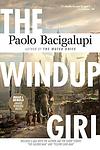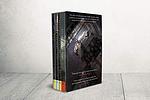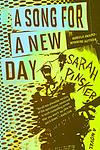The Greatest "Science fiction, Soft Science Fiction, Fiction" Books Since 2000
Click to learn how this list is calculated.
This list represents a comprehensive and trusted collection of the greatest books. Developed through a specialized algorithm, it brings together 300 'best of' book lists to form a definitive guide to the world's most acclaimed books. For those interested in how these books are chosen, additional details can be found on the rankings page.
Genres
Science fiction is a genre of literature that explores the potential consequences of scientific and other innovations on society and individuals. It often features futuristic or imaginary settings, advanced technologies, and scientific concepts that are not yet fully understood or realized. Science fiction can encompass a wide range of themes, including space exploration, time travel, artificial intelligence, and alternate realities. It is a genre that allows authors to speculate on the future of humanity and the impact of scientific progress on our lives.
Soft science fiction, often abbreviated as "soft sci-fi," is a subgenre of science fiction that emphasizes the social sciences, such as psychology, sociology, and anthropology, over the hard sciences like physics and chemistry. Unlike its counterpart, hard science fiction, which focuses on scientific accuracy and technical detail, soft science fiction explores the human condition, societal changes, and speculative futures through the lens of technology and its impact on society. This genre often delves into themes of ethics, culture, and human relationships, using futuristic settings and speculative technology as a backdrop to examine how these elements interact and affect individuals and societies. Soft science fiction is less concerned with the how and why of technology itself, and more interested in the implications and consequences of technological and societal evolution, making it a rich field for exploring complex characters, speculative societies, and philosophical questions.
Countries
Date Range
Reading Statistics
Click the button below to see how many of these books you've read!
Download
If you're interested in downloading this list as a CSV file for use in a spreadsheet application, you can easily do so by clicking the button below. Please note that to ensure a manageable file size and faster download, the CSV will include details for only the first 500 books.
Download-
1. Never Let Me Go by Kazuo Ishiguro
The novel is a haunting tale of three friends, who grow up together at a seemingly idyllic English boarding school. As they mature, they discover a dark secret about their school and the purpose of their existence, which is to become organ donors for the rest of society. The story is a profound exploration of what it means to be human, the morality of scientific innovation, and the heartbreaking reality of love and loss.
-
2. Cloud Atlas by David Mitchell
This novel is a unique blend of six different stories, each set in a different time and place, spanning from the 19th century South Pacific to a post-apocalyptic future. Each tale is written in a different style, reflecting the time and setting it represents, and they are all connected through shared themes and recurring motifs. The stories are nested within each other, with each interrupted by the next, only to be concluded in the second half of the book. The novel explores themes of predacity, civilization, reincarnation and the eternal recurrence of the same behaviors throughout history.
-
3. The Fifth Season by N. K. Jemisin
A woman searches for her kidnapped daughter in a world ravaged by a catastrophic climate change event known as the Fifth Season. Simultaneously, the narrative follows a young girl with destructive powers and a man struggling to control his own similar abilities. The story explores themes of oppression, survival, and the destructive power of nature, all set in a dystopian world where the earth is constantly in flux, and society is strictly divided and controlled.
-
4. Oryx and Crake by Margaret Atwood
Set in a post-apocalyptic world, the novel follows the life of Snowman, who believes he may be the last human on earth, as he struggles to survive in a new, harsh environment. He is surrounded by genetically modified creatures, and his only companions are the Crakers, human-like beings created by his brilliant but disturbed friend Crake. Through Snowman's memories, the story of how the world came to be this way is revealed, involving a love triangle with the mysterious Oryx and the catastrophic consequences of Crake's scientific experiments.
-
5. The Windup Girl by Paolo Bacigalupi
Set in a future Thailand amidst a world ravaged by climate change and depleted resources, the story unfolds in a bustling city where biotech corporations vie for supremacy. The narrative centers around a genetically engineered "New Person," known as the Windup Girl, who is trapped in a life of servitude and exploitation. As the city teeters on the brink of political and environmental collapse, the fates of various characters—including a foreign energy investor, a disgraced geneticist, and a street-smart refugee—intertwine with that of the Windup Girl. Together, they navigate a treacherous landscape of corporate greed, oppressive government, and social upheaval, in a desperate search for survival and redemption in a world where every action has unforeseen consequences.
-
6. Exit Strategy by Martha Wells
In "Exit Strategy," a thrilling sci-fi novel, a rogue artificial intelligence named Murderbot continues its quest for freedom and self-discovery. Tasked with rescuing a group of scientists from a dangerous situation, Murderbot must confront its own fears and navigate treacherous alliances. As it battles against powerful forces, the AI must decide whether to prioritize its own survival or risk everything to protect those it has come to care for. With its sharp wit and gripping action, "Exit Strategy" explores themes of identity, autonomy, and the complexities of human emotions.
-
7. Metro 2033 by Dmitri Glukhovsky
This novel is set in a post-apocalyptic Moscow, where the remnants of humanity have taken refuge in the underground metro system after a devastating nuclear war. The story follows Artyom, a young man who embarks on a perilous journey through the dark, mutant-infested tunnels of the metro to seek help against a new, mysterious threat that endangers the fragile existence of the metro's survivors. Along the way, he encounters various factions vying for power and control, confronts his deepest fears, and questions his beliefs and the nature of reality itself. The narrative weaves together themes of survival, hope, and the enduring human spirit in the face of overwhelming darkness.
-
8. All Systems Red by Martha Wells
In this science fiction novella, a self-aware security android, which has secretly hacked its own governor module to gain autonomy, refers to itself as "Murderbot." Despite its disinterest in human affairs, Murderbot finds itself compelled to protect the human crew it is assigned to on a distant planet after a series of mysterious and dangerous events unfold. Struggling with its own identity and the desire to remain unnoticed, Murderbot must navigate the complexities of human interaction and its own past, all while ensuring the safety of its charges from unknown threats.
-
9. Powers by Ursula K. Le Guin
"Powers" is the final installment in a young adult fantasy series set in a world where some individuals possess magical abilities. The story follows a young slave with an extraordinary memory who escapes his life of servitude and embarks on a journey of self-discovery. Along the way, he encounters various cultures and belief systems, which challenge his understanding of freedom, power, and the nature of his own abilities. As he navigates political intrigue and personal challenges, he must come to terms with his past and decide what kind of future he wants to create for himself and others.
-
10. A Song for a New Day by Sarah Pinsker
In a future where public gatherings are illegal due to terrorist attacks and a pandemic, society has adapted to isolation, with virtual reality concerts replacing live events. The story follows a musician who once thrived on the energy of live performances and a talent scout for a corporate entertainment company, as they navigate this new world. The musician, longing for the connection that once came with her art, becomes involved in an underground music scene, defying the law to perform for small, secret gatherings. Meanwhile, the talent scout, whose job is to find musicians for virtual performances, begins to question the sterile world she's helping to perpetuate. Their paths intersect, leading to a powerful exploration of the importance of community and the transformative power of music in a world where the very essence of human connection has been fundamentally altered.
Reading Statistics
Click the button below to see how many of these books you've read!
Download
If you're interested in downloading this list as a CSV file for use in a spreadsheet application, you can easily do so by clicking the button below. Please note that to ensure a manageable file size and faster download, the CSV will include details for only the first 500 books.
Download








